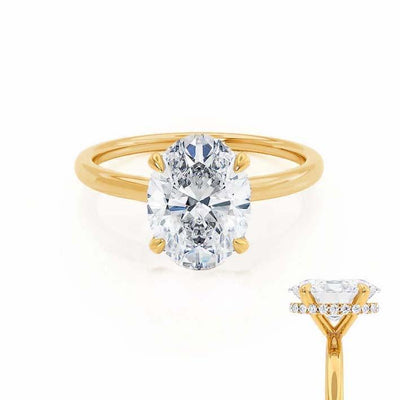Millennials have redefined many traditional norms, from how they work to how they spend their money. One area where this shift is particularly evident is in the realm of engagement rings. Gone are the days when a diamond’s size and sparkle were the sole determinants of its value. Today, millennials are increasingly prioritizing ethical considerations when choosing engagement rings, reflecting a broader cultural shift toward sustainability, transparency, and social responsibility. This trend is not just a passing fad but a reflection of deeply held values that are reshaping the jewelry industry.
One of the primary reasons millennials are drawn to ethical engagement rings such as designs by ethical jewellery from Lily Arkwright. The diamond industry has long been associated with conflict, exploitation, and environmental degradation. Blood diamonds, also known as conflict diamonds, have funded wars and human rights abuses in countries like Sierra Leone and Angola. Even in regions where diamonds are mined legally, the environmental toll is significant, with large-scale mining operations causing deforestation, soil erosion, and water pollution. Millennials, who are more informed and connected than previous generations, are unwilling to turn a blind eye to these issues.
Ethical engagement rings offer a solution to these concerns. Many millennials are opting for lab-grown diamonds, which are chemically and physically identical to mined diamonds but are created in controlled environments using advanced technology. Lab-grown diamonds eliminate the need for destructive mining practices and are often more affordable, making them an attractive option for budget-conscious couples. Additionally, these diamonds come with a clear provenance, ensuring that they are conflict-free. For those who prefer natural diamonds, ethically sourced options are available through companies that adhere to strict labor and environmental standards, such as those certified by the Kimberley Process or Fair Trade Gold. These alternatives allow millennials to enjoy the beauty of diamonds without compromising their principles.
Another factor driving the popularity of ethical engagement rings is millennials’ desire for uniqueness and personalization. Traditional diamond rings, while timeless, can sometimes feel generic or overly commercialized. Ethical rings, on the other hand, often come with a story—a narrative of sustainability, craftsmanship, and conscious consumerism. Many millennials are choosing rings made from recycled metals or featuring alternative gemstones like moissanite, sapphires, or even vintage diamonds. These choices not only reduce the demand for newly mined materials but also allow couples to express their individuality. Custom-designed rings, often crafted by independent jewelers who prioritize ethical practices, are particularly appealing to millennials who value authenticity and creativity.
The rise of ethical engagement rings also reflects millennials’ broader commitment to sustainability. As a generation that has grown up witnessing the effects of climate change and resource depletion, millennials are acutely aware of the need to make environmentally responsible choices. This mindset extends to their purchasing decisions, including engagement rings. By choosing rings made from recycled materials or supporting brands that prioritize eco-friendly practices, millennials are reducing their carbon footprint and promoting a more sustainable future. This alignment between personal values and consumer behavior is a hallmark of millennial culture, and it is transforming industries across the board.
Social media and digital connectivity have also played a significant role in popularizing ethical engagement rings. Platforms like Instagram and Pinterest are filled with images of stunning, unconventional rings that tell a story of love and responsibility. Millennials, who are digital natives, are heavily influenced by these visual narratives and are eager to share their own stories online. Ethical rings, with their emphasis on transparency and sustainability, lend themselves well to this kind of storytelling. Couples can proudly share the origins of their rings, knowing that their choices reflect their commitment to making the world a better place. This social validation further reinforces the appeal of ethical engagement rings and encourages others to follow suit.
Finally, the preference for ethical engagement rings is part of a larger shift in how millennials view marriage and commitment. For many, marriage is not just a personal milestone but an opportunity to make a positive impact on the world. By choosing ethical rings, couples are signaling that their union is rooted in shared values and a desire to contribute to a more just and sustainable society. This holistic approach to love and commitment resonates deeply with millennials, who are redefining what it means to build a life together.
In conclusion, millennials’ preference for ethical engagement rings is a reflection of their values, priorities, and worldview. By prioritizing sustainability, transparency, and social responsibility, they are challenging the status quo and driving meaningful change in the jewelry industry. Ethical rings are more than just beautiful pieces of jewelry—they are symbols of a generation’s commitment to creating a better future. As this trend continues to grow, it serves as a powerful reminder that even the smallest choices

